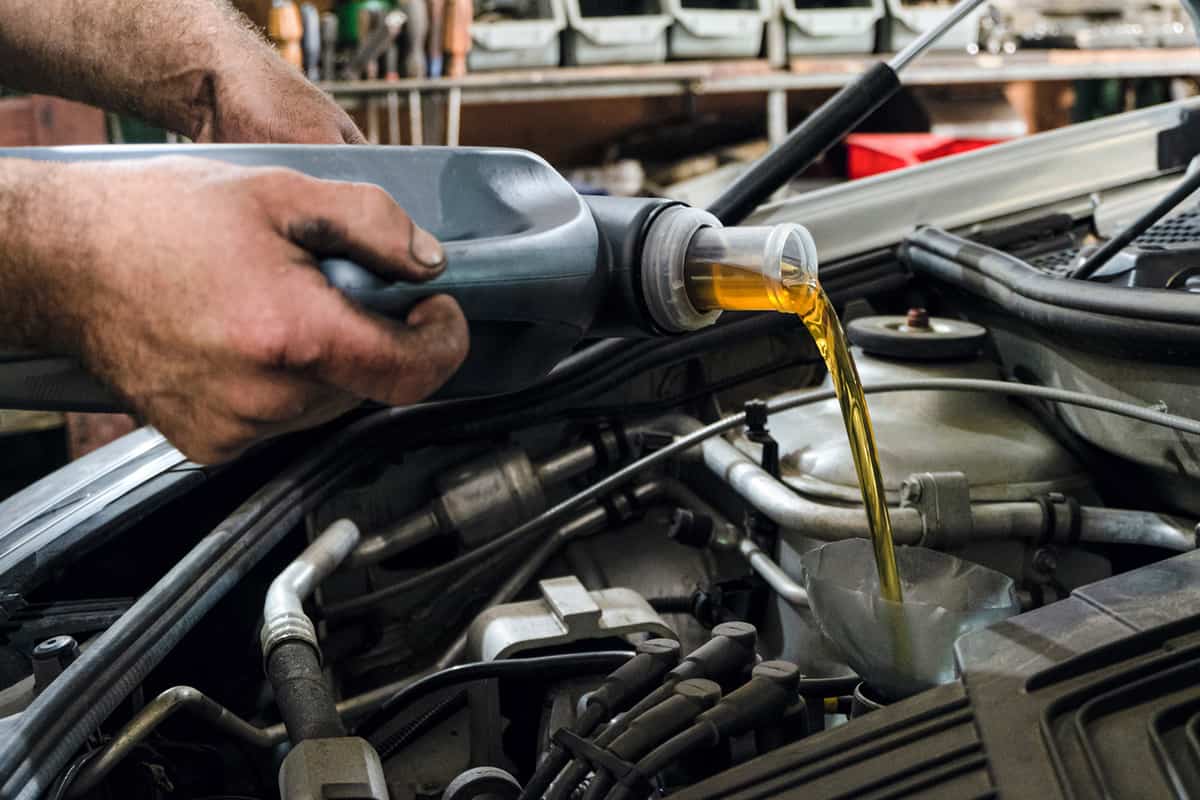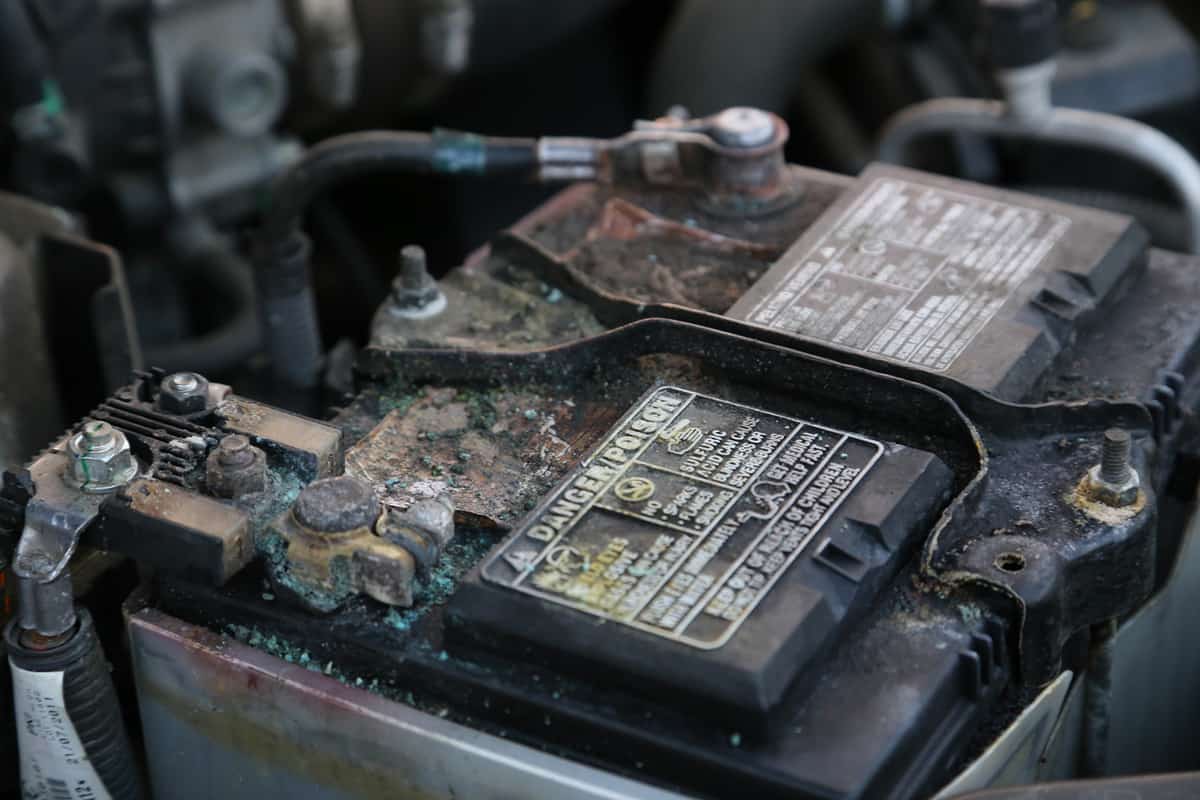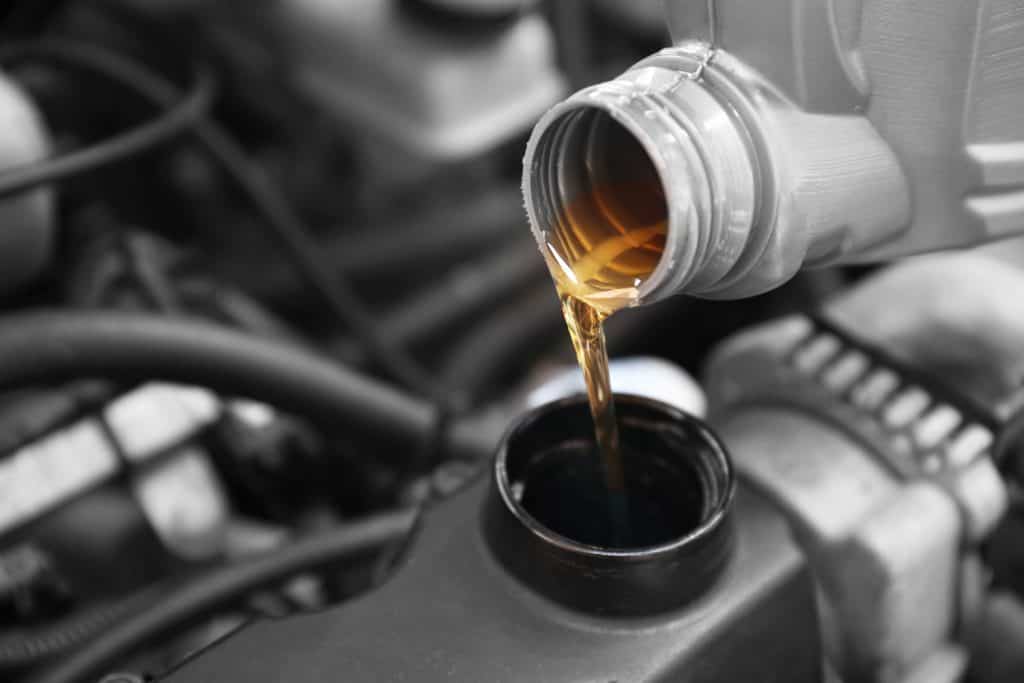It's never fun when your vehicle won't start. However, will adding oil make a car start? Let's take a look to see if this is a viable option below.
If your engine oil is low, it is possible that the engine won't start. Add the recommended amount of oil to the engine and then try to start it. However, if the engine oil level is fine, there could be another reason why your car isn't starting.
Oil is the engine's lifeblood; it helps to lubricate all the moving parts in an engine and keeps it running smoothly. This article will discuss why your engine won't start without oil and the other reasons why your car might not be starting. In addition, we will answer other frequently asked questions about engine oil, so read on!
![Car mechanic fills motor oil into a car engine - Will Adding Oil Make Car [And How To Tell If Your Oil Is Low]](https://vehq.com/wp-content/uploads/2022/04/Car-mechanic-fills-motor-oil-into-a-car-engine-Will-Adding-Oil-Make-Car-And-How-To-Tell-If-Your-Oil-Is-Low-2.png)
Why Does An Engine Need Oil To Start?

Generally, an engine needs oil to start for a few reasons. First, the oil helps to lubricate the engine's moving parts.
When the engine's parts are adequately lubricated, they can move freely and without friction. This is important because friction can cause damage to the engine's components.
Second, the oil helps to cool the engine. The engine produces a lot of heat when running, and oil helps to dissipate that heat.
Finally, the oil helps to clean the engine. Over time, the engine's parts can become dirty and contaminated with debris. Oil helps to remove this debris and keep the engine clean.
If your engine is low on oil, it is possible that the engine will not start. In addition, the engine can seize up if it does not have enough oil, and this can cause severe damage to the engine.
It is essential to check the oil level regularly and add oil as needed. If you are unsure how to do this, consult your owner's manual or a certified mechanic.
However, if your oil level is where it should be, there might be another reason why your engine won't start.
Let's look at some of the other reasons why your engine might not be starting.
Bad Battery
One of the most common reasons a car won't start is a bad battery. The battery provides power to the starter, which helps the engine turn over and start.
If the battery is dead, then the car will not start. Try jump-starting the vehicle or charging the battery is low on power. If that doesn't solve the problem, take the battery to a certified mechanic or auto parts store to have it tested.
Loose Battery Cables
If the battery holds a charge, but the car still won't start, the problem might be loose battery cables. The battery cables are what connect the battery to the starter.
If they are loose or damaged, then the electrical current will not be able to flow correctly, and the car will not start. Try tightening the battery cables or replacing them if they are damaged.
Corroded Battery Terminals
Over time, battery terminals can become corroded, which will prevent the electrical current from flowing properly. This can happen if the battery is not maintained properly or exposed to the elements.
Try cleaning the battery terminals with a wire brush and baking soda to remove the corrosion. If that doesn't work, you might need to replace the battery.

Faulty Alternator
If everything seems fine with the battery and its components, but the car still won't start, the problem might be a faulty alternator. The alternator is what charges the battery while the engine is running.
If it is not working correctly, then the battery will not be able to hold a charge, and the car will not start. After charging the battery, if it quickly drains, then the alternator might be the problem.
Take the car to a certified mechanic or auto parts store to have the alternator tested.
Bad Fuel Pump
If the engine is not getting enough fuel, it will not start. The fuel pump is what delivers fuel to the engine. If it isn't working properly, then the engine will not receive enough fuel and will not start.
You might be able to hear the fuel pump when you try to start the car. Common sounds include a whining noise or a clicking noise.
Worn Spark Plugs
Spark plugs are what help to ignite the fuel in the engine. If they are worn or damaged, then the engine will not start. Take a spark plug out and check it to see if it is damaged. If it is, then you will need to replace it.
Clogged Fuel Filter
If the fuel filter is clogged, then the engine will not receive enough fuel and will not start. The fuel filter helps remove impurities from the fuel before it reaches the engine.
Try replacing the fuel filter if it is dirty or clogged.
Faulty Starter
The starter is what helps the engine to turn over and start. If it is not working properly, then the engine will not start.
If the starter is making a clicking noise, it might be damaged and need a replacement. It could be the starter motor, the starter solenoid, or the starter relay.

Ignition Switch Problems
The ignition switch is what helps to turn the engine on. If it is not working correctly, then the engine will not start.
Common symptoms of an ignition switch problem include the car not starting when the key is turned, the car stalling while driving, or the headlights and dash lights going out.
Bad Timing Belt
If the timing belt is damaged or worn, the engine will not start. The timing belt is what helps to keep the engine in sync. Take a look at the timing belt to see if it is damaged.
If it is, then you will need to get your vehicle towed to a certified mechanic to have it fixed.
Clogged Air Filter
The air filter helps remove impurities from the air before it reaches the engine. If it is clogged, then the engine will not start. Locate the air filter cabin and check to see if it is clean or dirty.
If it is dirty, you will need to replace the air filter.
Why Is My Oil Not Showing On The Dipstick?
If you aren't getting a reading on your dipstick, it may mean that there's not enough oil in the system and oil needs to be added. Check your owner's manual to see how many quarts of oil your car takes.
If your car is leaking oil, that could also account for a dipstick reading of 0. You'll want to check for leaks and repair them as soon as possible.
After adding oil, you should check it before turning the engine on or 5-10 minutes after turning the vehicle off. If the level is still low, check for leaks again and add oil.
What Are The Signs Of Low Oil?
There are a few things you can look for if you think your car might have low oil. Some common signs include:
Burning Smell
If you notice a burning smell coming from your car, it could signify that your oil is low. This is because when the oil gets low, it starts to burn.
Oil Light Comes On
Most cars have an oil light that will come on when the oil gets low. If this light comes on, it's a good idea to check your oil level as soon as possible.
Engine Knocking
If you start to hear a knocking noise coming from your engine, it could be a sign of low oil. When the oil gets low, it doesn't lubricate the engine as well, causing the parts to rub together and make a knocking noise.
Overheating Engine
If you notice your engine temperature gauge going up, it could signify low oil. When the oil gets low, it can't properly cool the engine, causing it to overheat.
Poor Performance
The engine can't perform at its best when there's low oil. So if you notice your car isn't accelerating as quickly or smoothly, it could be a sign that you're due for an oil change.
In any of these circumstances, pull over and check your oil level as soon as possible. If it's low, add oil and continue to your destination.
Call a tow truck if it doesn't improve, or the light stays on after adding oil.
To Wrap It Up

Without engine oil, your car won't be able to run. This is because oil helps to lubricate the engine and keep it running smoothly. However, if the oil isn't the problem, there are other things to check, and if you aren't sure, you should take it to a certified mechanic.
Made it to the end? Check out these helpful related posts below!

I have a 2005 Chevy classic 2.2l. It uses oil, I have yet to pin down exactly how much. The dipstick is confusing. Sometimes it shows it’s ok, then check it again and no oil registers on dipstick. What is the consequences of too much oil in engine? I honestly cannot tell how much is in there. The dipstick is faulty